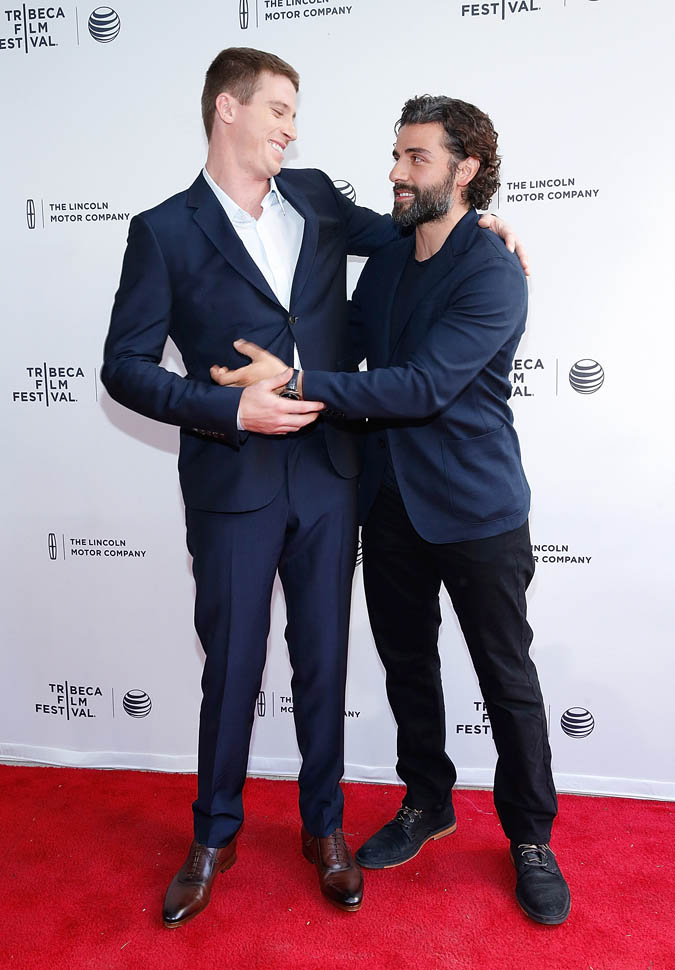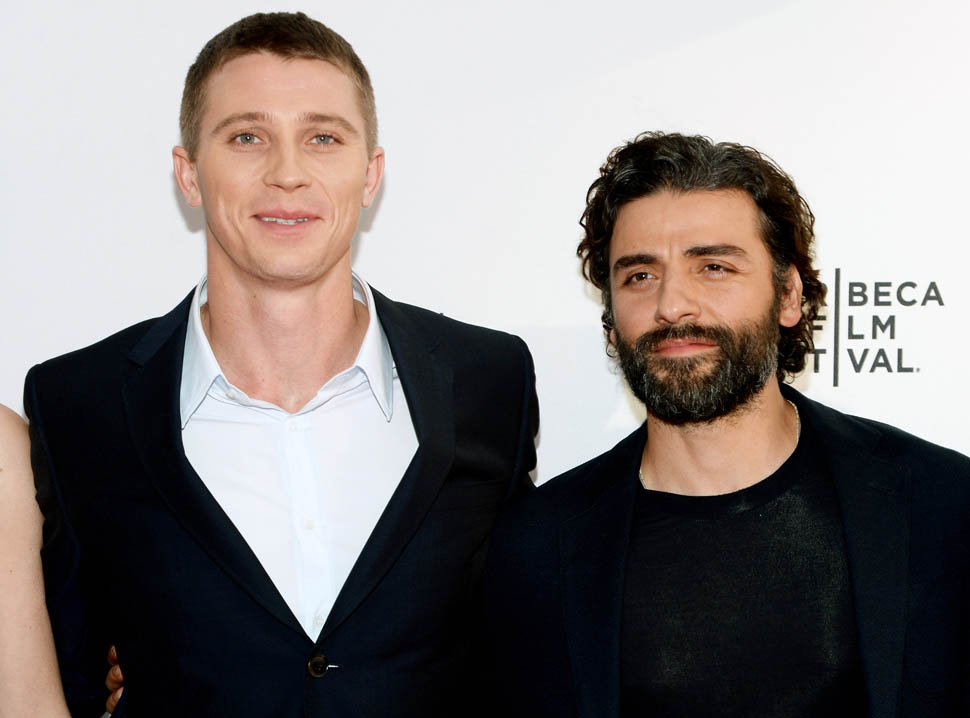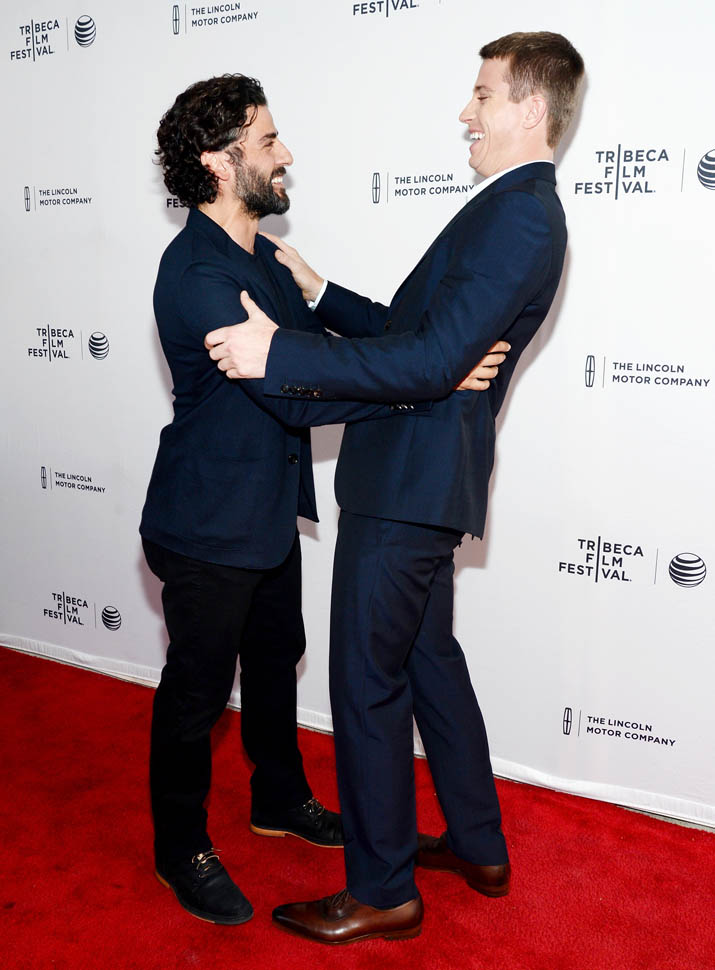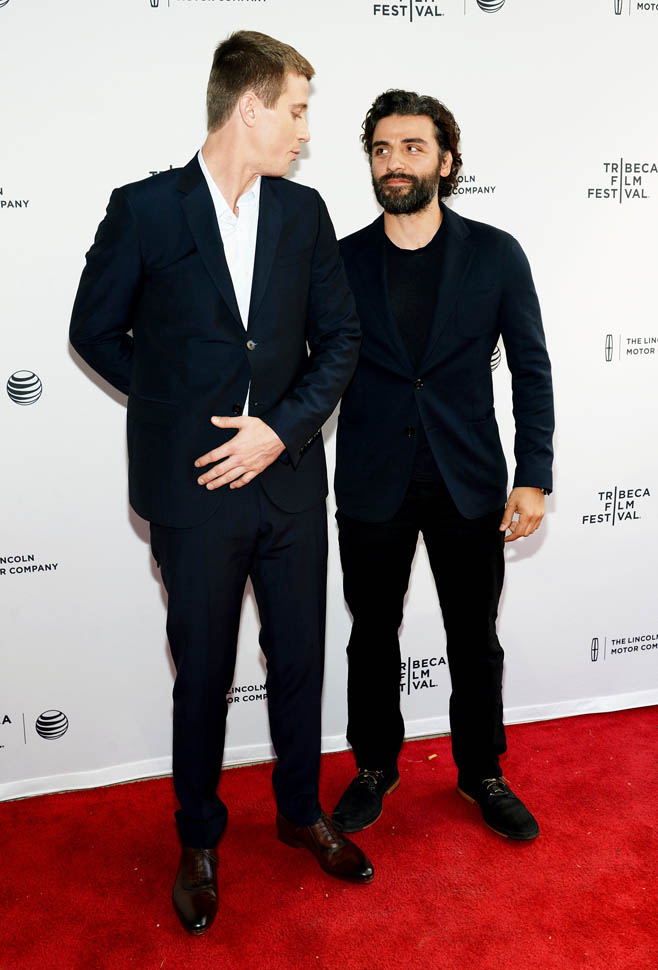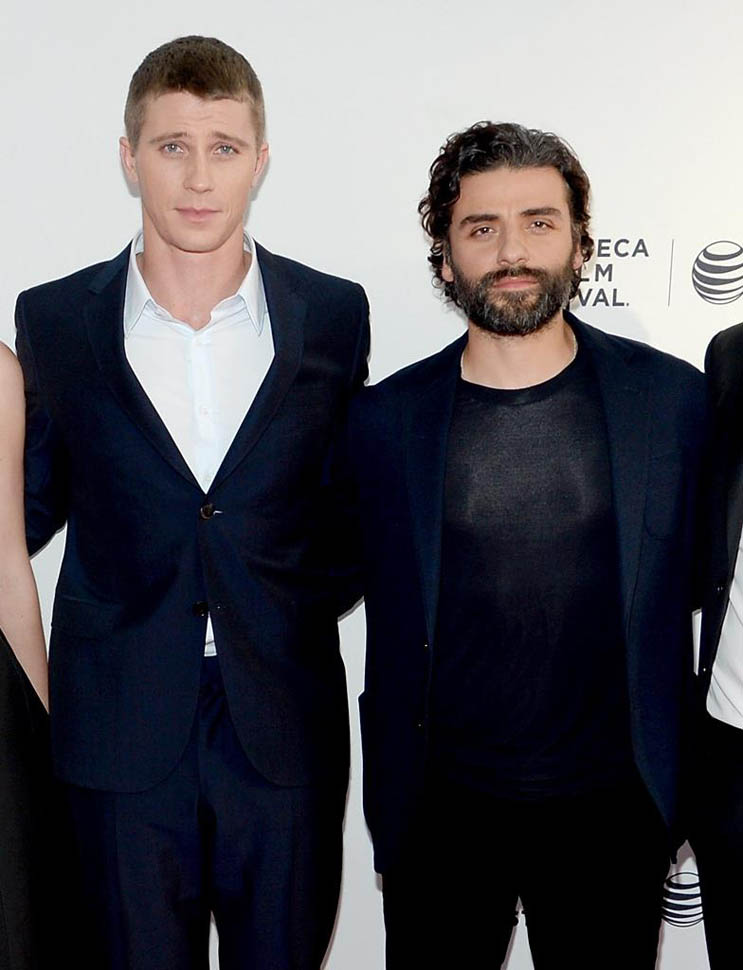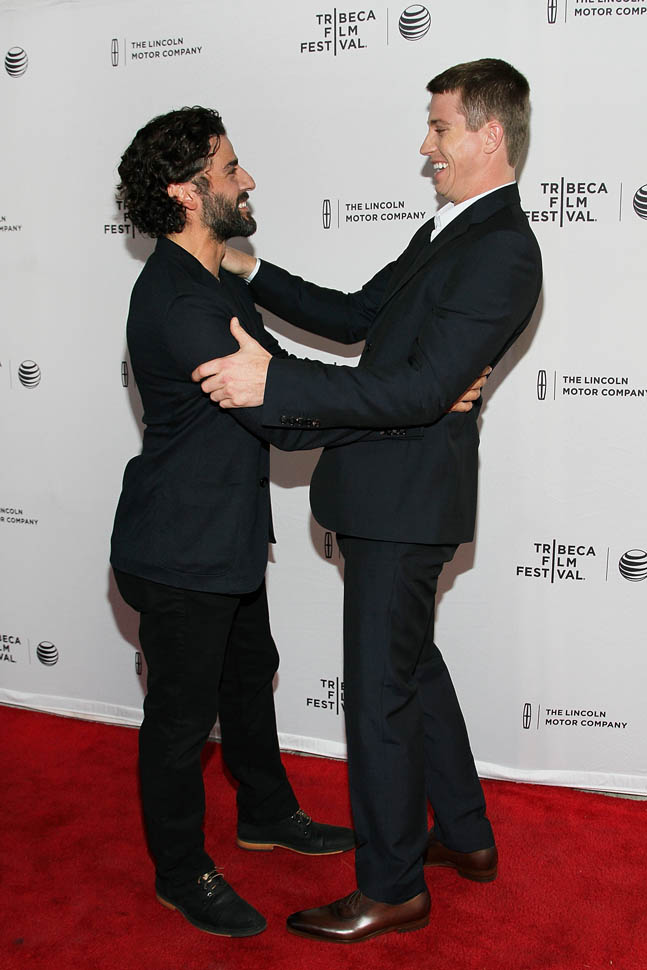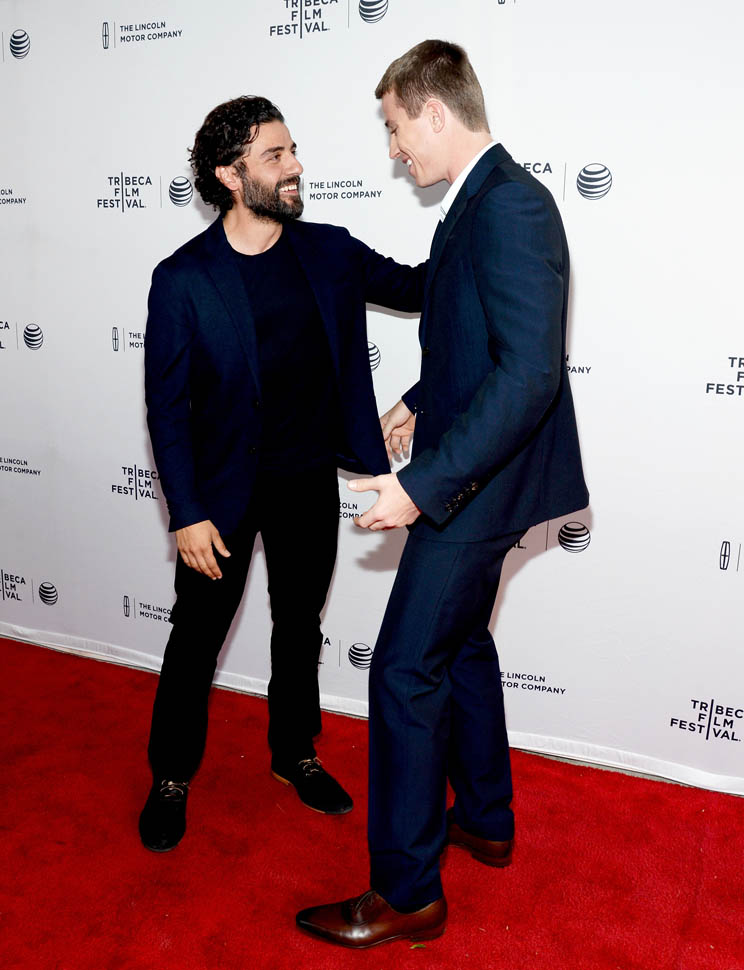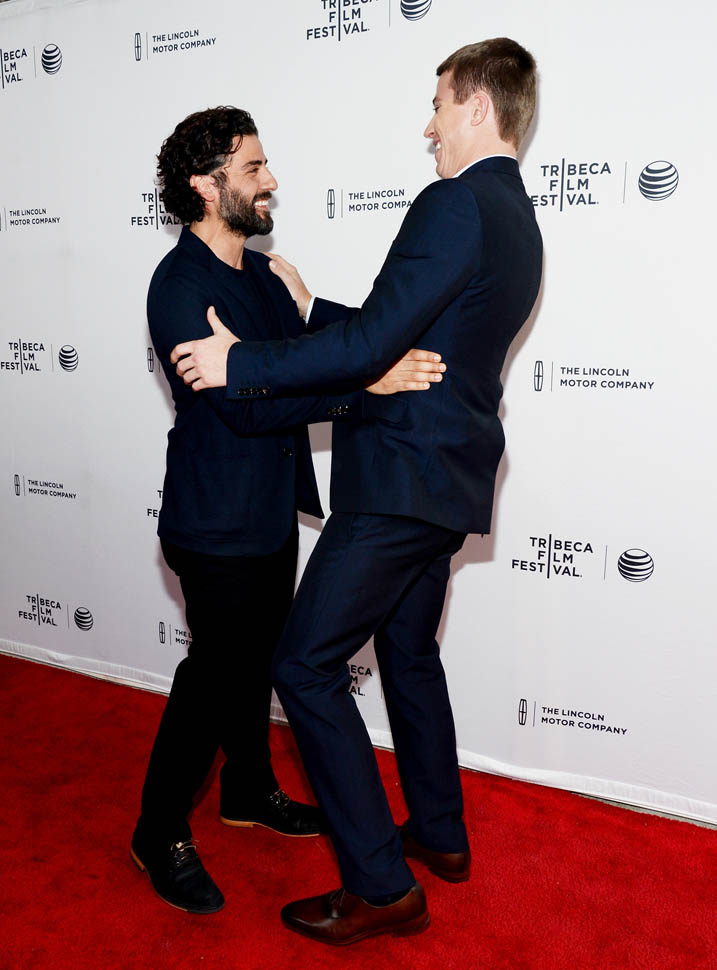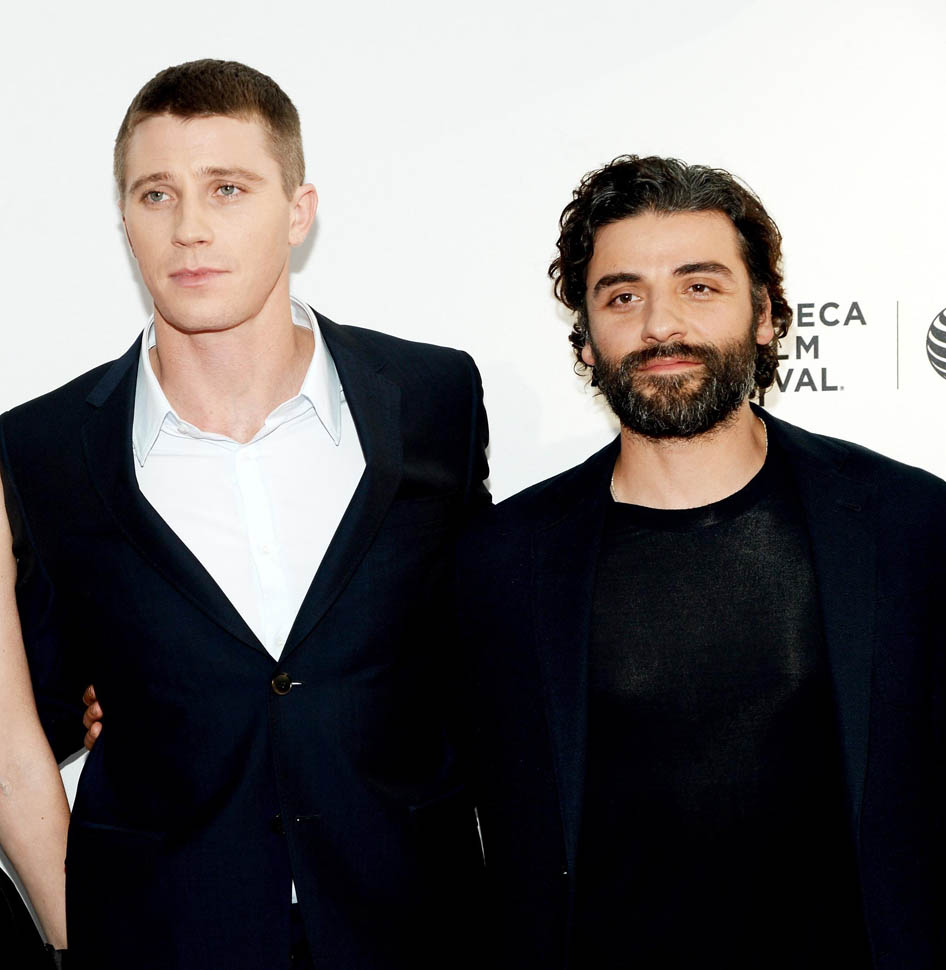Oscar Isaac and Garrett Hedlund in Mojave



Part noir, part Western, part black comedy, part inside Hollywood drama, Mojave is a Frankenstein movie, a genre mash-up where not all parts are created equal. Garrett Hedlund stars as Tom, a filmmaker whose life and career seems to have hit rock bottom. Written and directed by William Monahan (the Oscar-winning screenwriter of The Departed), one of the smart things about Mojave is that it doesn’t bog us down with expository details. Monahan suggests his characters’ lives in broad brushstrokes, opening with an interview of Tom in which he proclaims, “I’ve been famous since I was nineteen,” and then moving right into scenes of Tom’s depleted LA life. He has a family, but he’s shacking up with an actress in a semi-squalid Hollywood Hills house. He’s that kind of asshole.
He’s also the kind of asshole who f*cks off into the desert with nothing more than a note that says, “I have to go to the desert.” Within minutes of the film beginning, Tom is speeding through the Mojave in a Jeep, driving recklessly and inevitably crashing, stranding himself in the desert. Enter Jack, played by Oscar Isaac. If Tom is straight out of Bret Easton Ellis’s most masturbatory fantasies, then Jack is something from a B-movie Western, complete with scraggly hair, shotgun, and duster. It’s not that Hedlund isn’t a good actor—he is—it’s just that when Oscar Isaac is on screen you can’t look at anything else, so Jack is instantly the center of attention.
He’s aided in large part by a long monologue that Isaac obviously enjoys the hell out of delivering. Monahan gives everyone lots of verbiage to chew on—though Hedlund has to wait until nearly the end of the movie to get his jawing in—but no one enjoys it more than Isaac, except maybe Walton Goggins, who shows up as a Hollywood lawyer and gets to recline his way through the movie. Seriously, I don’t think the guy stood up once. Anyway, Isaac goes for broke with his scenes, playing Jack with a sort of demented glee that is very fun to watch. The entire movie is a chess match between Jack and Tom, and watching Hedlund and Isaac go toe-to-toe covers up most of the movie’s flaws.
Mojave is only ninety-three minutes long, but the pacing is off, making it feel longer. Way too much time is given to Mark Wahlberg as Tom’s producer on a film, and the subplot about Tom’s romantic life is pretty much useless. We’re well convinced of Jack’s menace long before he gets around to scaring Tom’s girlfriend. But, just when you start getting frustrated with Mojave for going off on a tangent, either Jack will show up and do something weird, or he and Tom will trade thoughts on the nature of genius and get things going again.
This isn’t going to be for everybody. Mojave is a rambling movie that slides through genres and leans heavily on inside-Hollywood references ranging from Sunset Boulevard to the Chateau Marmont, and it’s relentlessly cynical in a way that feels borderline mean. The dialogue is copious and self-important, but if you’re into watching good actors deliver diatribes with obvious enjoyment, then it is quite watchable. It’s especially watchable for Oscar Isaac fans—new or old—as it’s a great showcase for a what f*cking weirdo he can be. Monahan isn’t really adding anything new to the conversation with his observations of art and artists, but everyone is clearly enjoying delivering his dialogue. Mojave is a little uneven and prone to navel-gazing, but the performances are just weird enough to keep it lively.
Mojave is in select theaters and available on demand.
Attached - Oscar Isaac and Garrett Hedlund at the Tribeca Film Festival premiere of Mojave in April.

